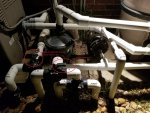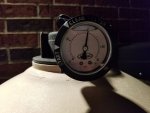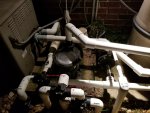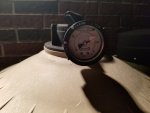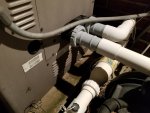Hi!
This is my first time on this forum, so unsure if I'm posting in the right place. But giving it a go. I have a Hayward H400 heater that I can use to heat up either my spa or pool. When I need to heat up the pool, I ensure the valves take in water from the pool and send it back to the pool and set the heater to pool mode. With spa, intake from spa, flowing back to spa and heater mode set to spa. Regardless of heater operation, water from the pump always flows through the heater (as is normal I guess). Interesting thing is that when the valves are set to pool, water flow is all fine, but when I get it to spa, water leaks out from the side of the heater. The leaks are not just drips, but a shower like flow. I'd talked to my pool guy about why the difference and he states that with the spa flow, the pressure might be higher (smaller intake and outflow) cause something in the heater to leak while with the pool the pressure reading is not as high. (This pressure is actually reflected in my main filter).
Not sure if anyone has experienced this before? Thanks in advance for your help.
Aby
This is my first time on this forum, so unsure if I'm posting in the right place. But giving it a go. I have a Hayward H400 heater that I can use to heat up either my spa or pool. When I need to heat up the pool, I ensure the valves take in water from the pool and send it back to the pool and set the heater to pool mode. With spa, intake from spa, flowing back to spa and heater mode set to spa. Regardless of heater operation, water from the pump always flows through the heater (as is normal I guess). Interesting thing is that when the valves are set to pool, water flow is all fine, but when I get it to spa, water leaks out from the side of the heater. The leaks are not just drips, but a shower like flow. I'd talked to my pool guy about why the difference and he states that with the spa flow, the pressure might be higher (smaller intake and outflow) cause something in the heater to leak while with the pool the pressure reading is not as high. (This pressure is actually reflected in my main filter).
Not sure if anyone has experienced this before? Thanks in advance for your help.
Aby


